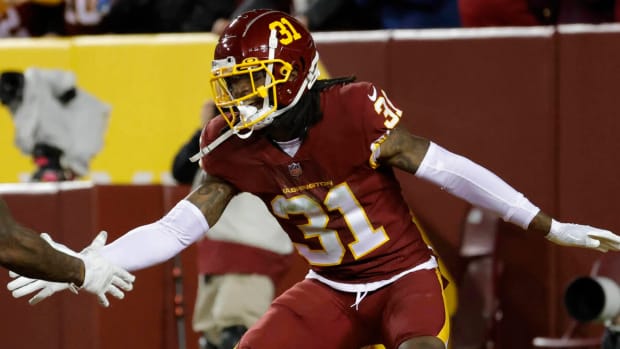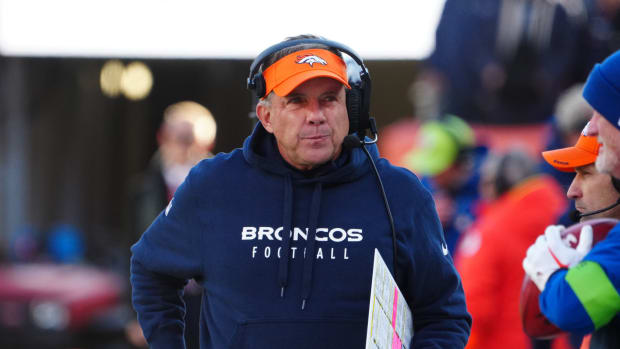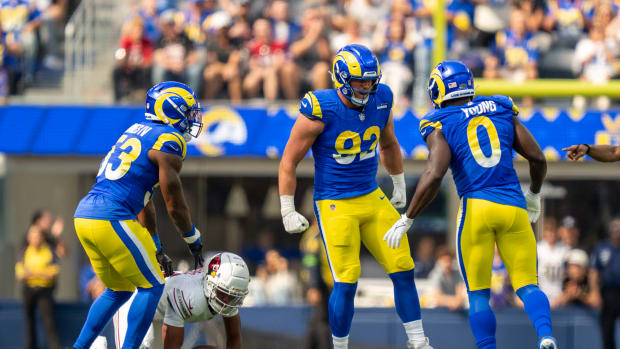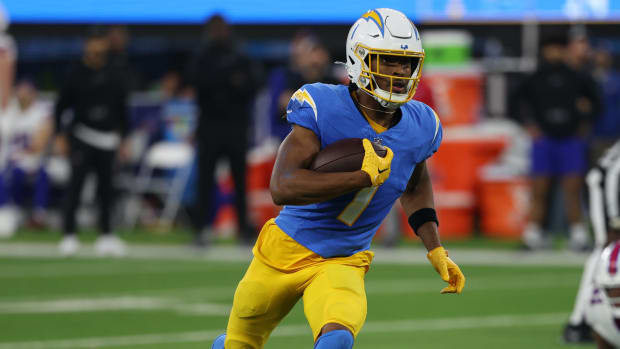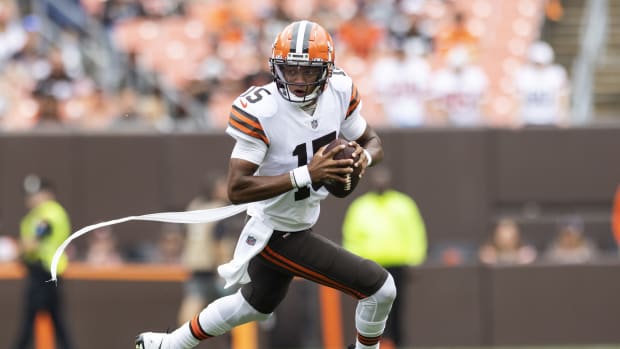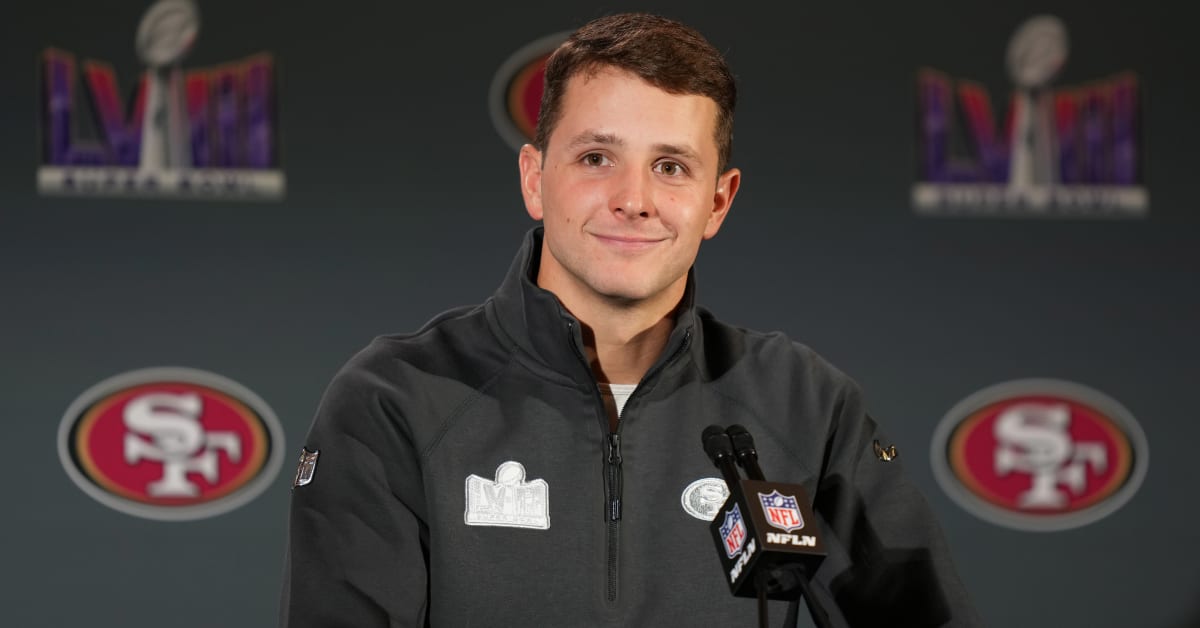
The NFL’s Gambling Hypocrisy at 2024 Super Bowl and Brock Purdy’s Pay Day
Another NFL season is over, and it’s time for the business side to take over. Fear not: I’ll take you along for the seven-month ride with insights gleaned from decades of experience as a former agent, team executive, law professor and—in my spare time—media member. Settle in …
NFL embraces sports betting
I am still shaking my head that the NFL just staged its pinnacle event, the Super Bowl, in Las Vegas. No area of sports law or business has undergone as massive a sea change in attitude and in policy as has sports betting. The NFL, the nation’s most popular and profitable league, is now a microcosm for all domestic sports in its complete and utter reversal in stance on gambling.
I will never forget one time when I was with the Green Bay Packers, and some coaches and executives decided to have a fantasy football draft. We had two rules: (1) no money wagered, and (2) no Packers drafted. Ever the cautious lawyer, I called the NFL to let them know and get approval. My contact there simply said: Andrew, we didn’t have this conversation. Better for the NFL not to know we were doing that.
The NFL railed against sports gambling at every turn, citing the league mantra of “the integrity of the game.” It fought the state of New Jersey’s attempt to legalize sports betting in court for eight years, with tens of millions in legal fees. It barred Tony Romo from hosting a fantasy football convention in Las Vegas. It even rejected a “What happens here, stays here” Super Bowl ad from—guess who—Las Vegas.
But that was then, and this is now.
Ultimately, the NFL lost its moral high ground in this space when it approved the Raiders’ relocation to Las Vegas. Playing the Super Bowl in the same city is the culmination of such a reversal of position. And as some 700 players were making appearances last week at the Super Bowl, they were forced to do a delicate dance—where they could be in casinos and bet in casinos but not be associated with the casino or bet on football. Good luck enforcing that.
On a broader scale, the nation’s biggest sporting event was emblematic of sports and sports media these days. Everything, I mean everything, has sports gambling right in our faces. Full disclosure: I host a podcast sponsored by DraftKings, although I am not sure there is any sports podcast not sponsored by a sports betting company. Mainstream and ubiquitous sports betting, once such a taboo, is here to stay.
By the way, an estimated 68 million Americans bet on the game.
Meet the old boss, and the new boss
The leaders from the two sides of the NFL labor equation—the owners and the players—held press conferences last week. The owners’ leader, commissioner Roger Goodell, was on brand. He has a much-practiced ability to answer questions without answering them, especially delicate ones, and is forever unrevealing and corporate in his demeanor. I have known a more “human” side to Goodell; my sense is that he is the way he is in public because his bosses—aka the owners—want him to be that way.
Goodell’s answer about potentially putting the Super Bowl on a streaming service made some news, with him saying it would not happen under his watch (at least another four years). That is not surprising. Although NBC/Peacock paid $110 million for a wild-card game this year, and it was announced that Amazon will stream a playoff game next year, the Super Bowl is a bridge too far. At least for this decade.
As for the players’ leader, we got our first look at Lloyd Howell Jr., the surprise choice as NFLPA executive director. Howell, who spent most of his career as a consultant at Booz Allen Hamilton, presents a stark contrast to former NFLPA heads Gene Upshaw, a former player with a huge presence, and DeMaurice Smith, a combative lawyer who was a proud irritant to the NFL and its owners. Howell himself said: “I’m a corporate guy.” That was probably music to the ears of the owners.
Unlike Smith, Howell doesn’t seem willing to rock the boat with NFL management, bringing more of a business approach. He did emphasize a survey showing 92% of players prefer playing on grass fields, contrasting the NFL’s stated views about how players don’t mind artificial surfaces. However, he didn’t say how he was going to implement that with resistant owners.
Howell did make a gaffe about the sport he is leading, at one time referring to Deshaun Watson, who has the best player contract in the league, as Deshaun Watkins. Oof …
Speaking of the NFLPA ...
A Brock Purdy payday is far away
The deficiencies of Patrick Mahomes’s contract were partially rectified last year, but the restructuring only addressed part of its unprecedented length. While Mahomes’s legend grows, the quarterback who went toe to toe with him on Sunday is even more disadvantaged in his early years.
The Purdy story is more than the fascinating success of the last player picked in the draft. Consider that he was picked by the same team that had just mortgaged three first-round draft picks to draft a quarterback with the No. 3 pick (Trey Lance). But for Purdy saving the team the past couple of years, the all-in acquisition of Lance—traded this past offseason to the Dallas Cowboys for a fourth-round pick—would be much more of an albatross around the San Francisco 49ers’ front office.
Purdy is making less than a million dollars this year, as other top quarterbacks are making 30 to 80 times that (Lamar Jackson). Those figures have been catnip to social media and fan interest. His contract has, so far, allowed the 49ers to allocate their resources elsewhere on the team, a true competitive advantage. But it’s not a true financial advantage for the team. Rather, it is an advantage bestowed on them by the NFL–NFLPA Collective Bargaining Agreement.

Purdy led his team to two come-from-behind playoff victories before falling in the Super Bowl.
Kyle Terada/USA TODAY Sports
Not only is Purdy, as a drafted player, forced to sign a four-year contract, but that contract also cannot be renegotiated this offseason. The CBA requires that a player play three seasons before any renegotiation of his rookie contract. Thus, Purdy—coming off two seasons in which he led his team to the NFC championship and a Super Bowl, respectively—will be stuck on that rookie contract again, making less than $1 million.
So will Purdy get paid next year? It appears so right now, but one never knows what can happen next year with performance and/or injury. Even if he receives a contract at the top of the market, will it address the severe inequity he will have had for three seasons? My guess is no.
Purdy has been the most underpaid player in football in 2022 and ’23. And thanks to the CBA, he will be the most underpaid player in football, by far, in ’24. The 49ers have the NFL and NFLPA to hide behind for that inequity.




































